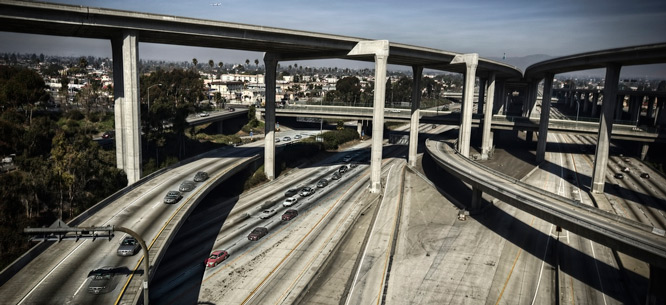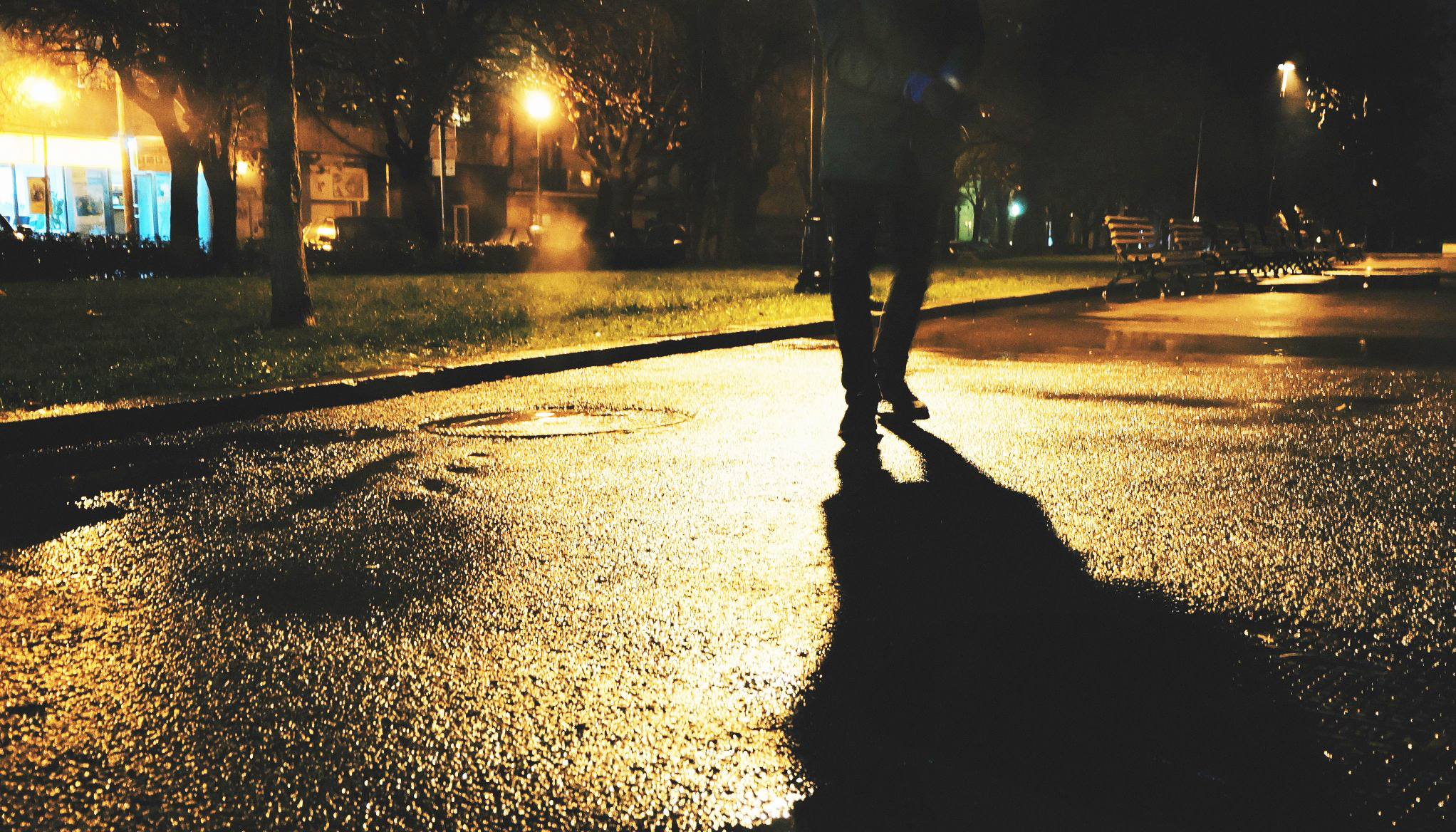The federal transportation fund is running out of money, threatening the country with potholes, stopped construction, and economic downturn. Congress, which has kept the program solvent with short-term patches for years, now finds itself unable to do more than buy a few months’ time.
Mainstream opinion pins the blame for this state of affairs on partisanship and anti-tax extremism. But the crisis has a deeper cause. In transportation, as in so many areas of American politics, the terms of debate are controlled by an elite that has lost touch with the rest of the country.
Voters on both the Tea Party right and the urban left have lost the desire to pay higher taxes for new roads. Yet powerful highway bureaucracies and their political allies insist that added revenues must go toward ever more cloverleafs and interstates. They keep searching for money to build what voters don’t want to pay for, a quest doomed to end in futility.
The roots of the congressional deadlock are best seen far from Washington.
When Texas Governor Rick Perry took office in 2000, he found himself caught between campaign contributors’ yearning to build expressways and conservative hostility to tax increases. He sought a way out with an aggressive program of toll-road building.
But when the highways opened, drivers rebelled against the stiff fees. Revenue fell far below forecasts, and grassroots activists launched an anti-toll campaign. At last month’s state Republican convention, the insurgents triumphed. The state party platform now calls for no new tolls (as well as no new taxes).
The leaders of Clayton County, Georgia, also felt the public’s wrath. This impoverished Atlanta suburb currently has no transit service at all, and it’s not unusual to see people carrying their groceries home on foot along busy highways without sidewalks. In June, the county commission voted 3–2 not to hold a referendum on a one-cent sales tax hike, the price of joining Atlanta’s bus and subway network. A vote on a half-penny increase was approved instead.
When the regional transit agency turned down the half-cent offer, the commission convened in special session over the July 4 weekend. Community leaders — among them 92-year-old civil rights leader Joseph Lowery — called for a mass turnout, and angry local voters thronged the meeting. Young urbanists from Atlanta backed them up. Two commission members reversed course, and the county will vote on the full penny in November.
The policy-making establishment gets ambushed like this because it has lost touch with the grassroots. During most of the twentieth century, owning an automobile of any kind was a mark of prosperity. Drivers took pride in their cars. They felt the lure of the open road and paid willingly to indulge that desire. Taxing gasoline was an unobjectionable way to raise revenue, and building roads was a popular way to spend it.
That political formula has gone out of date. In today’s suburbs, driving is mandatory. A mid-price car is no status symbol; it is the vehicle of the killer commute. The mental image associated with filling up the tank is a traffic jam. No one wants more of them, and the tax on gasoline is deeply disliked.
Meanwhile, people under 40 are driving less. They prefer to go where sidewalks are wide, streets narrow, and parking scarce. Best of all are places you can reach by train. The young, and many older drivers too, want better transit, and they are willing to pay for it. Los Angeles, long wedded to the automobile, approved a sales tax increase by a two-to-one referendum vote to pay for an ambitious subway-building plan. In the Washington, D.C. area, a 2010 poll found a 62 percent majority favored expanding transit rather than roads, even though 77 percent travel by car most or all the time.
The disconnect between voters and the political elite surfaced last year when Maryland raised its gas tax by 20 cents. The state needed money to build a pair of light rail lines in Baltimore and the Washington suburbs. Balky legislators demanded new cloverleafs in their districts in exchange for their votes — and then pointed to the rail lines when justifying the tax hike to their constituents.
Elsewhere, road builders counter public skepticism by coating their plans with a transit veneer. Costly widenings of interstate highways, they argue, are good for the environment because buses will share toll lanes. A vague promise of “bus rapid transit” decorates New York Governor Andrew Cuomo’s $4 billion plan to replace the still-sturdy Tappan Zee Bridge with a wider span.
Such cosmetics will not fool the public for long. Nor will a more cooperative atmosphere in Congress overcome deadlock. The funding crisis will end when the transportation on offer is what the voters who are open to higher taxes want.
This requires shifting priorities to address the demands of the 21st century. The young people who flock to city centers need ways to move around without a car. Decaying inner suburbs seek a transit-based revival. Without high-speed rail, travelers are forced onto overcrowded airlines.
A program that meets these needs by building railroads instead of highways could win wide support. It would benefit Democratic city dwellers and Republican real estate builders. It would promote the widely desired revival of American manufacturing. It offers obvious environmental benefits. But it will not happen until our elites catch up with the grassroots.
Benjamin Ross is a transit activist in Maryland. His new book, Dead End, is about the politics of urbanism and transit.






